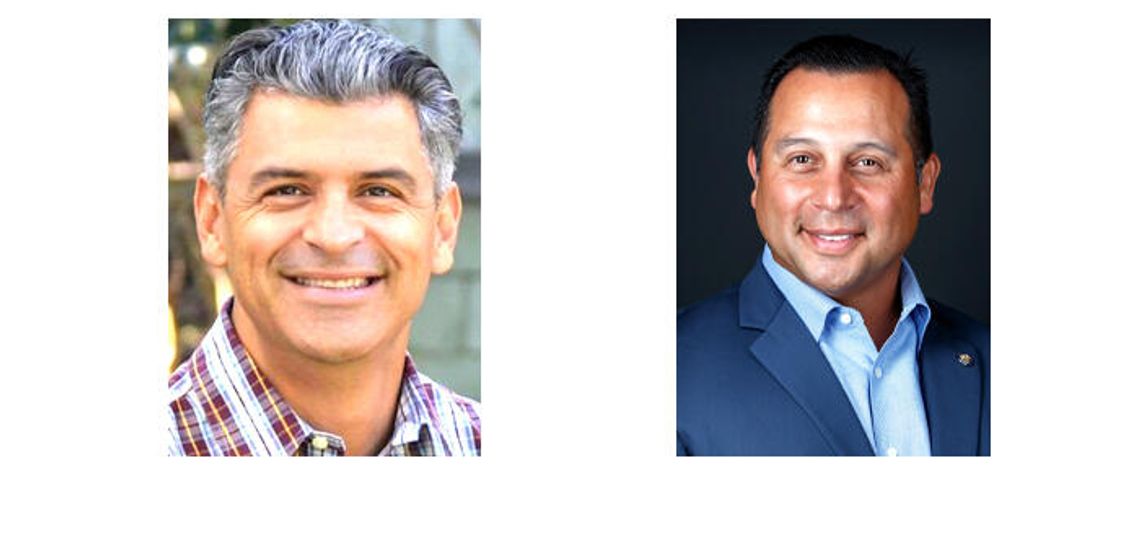by Anita Miller
An investigation by the Texas Attorney General’s office into Hays County Judge Ruben Becerra’s dealing regarding COVID-19 tests drew the ire of the judge this weekend.
Becerra took to social media over the weekend to criticize new reports about an ongoing AG investigation. The investigation looks into both Becerra and his right-hand man Alex Villalobos over their attempts to secure COVID-19 testing materials early in the pandemic.
He directed his vitriol at the San Marcos Daily Record which first reported the news on Sunday regarding the AG investigation. Other material had also been recently reported by news organizations including the statewide nonprofit Texas Tribune and the national investigative organization Pro Publica.
There are also unrelated allegations about Becerra’s unpaid federal taxes that the Hays Free Press/News-Dispatch had investigated, though releases on some of the federal tax liens have now been filed with Hays County.
Other questions have also arisen about Villalobos’ alleged inclusion on the Brady List, a compilation of law enforcement officers that prosecutors are reluctant to put on the witness stand because of doubts as to their truthfulness. There are questions about whether those listed should be allowed to carry a firearm which Villalobos did — but only because he was hired by then Precinct 3 Constable Ray Helm, who left office in disgrace over the summer in the wake of an AG investigation into falsified training records. Hays County District Attorney Wes Mau has told the Hays Free Press/News Dispatch he does not maintain a Brady List per se, but has stopped short of making public any compilation he does maintain.
Becerra, a Democrat elected to office in 2018, and Villalobos, the county’s chief of staff and Emergency Management Coordinator who also sits on the Kyle City Council and is the Democratic candidate for Hays County Sheriff, are being investigated by the office of Attorney General Ken Paxton for their association with MRG Medical, a company purporting to sell coronavirus testing kits that did not have approval from the Food and Drug Administration.
The company also attempted to use its relationship with Becerra and Hays County to market itself to other Texas counties. Paul Gullo, a representative of MDBox, a telemedicine company that was at the time associated with MRG Medical, was arrested in Kyle for deceptive business practices and making false or misleading statements after showing up at a hotel asking for a room in exchange for providing free tests for the staff.
Gullo also claimed that Becerra had been able to circumvent federal approval, although Becerra later denied he even knew Gullo. The arrest report also said Gullo made claims about his dealings with Villalobos, who also issued a denial. Nonetheless, another company, AnyPlace MD, that did have a relationship with MDBox, said it would launch a website, covidtaskforce.org
Not long after issuing an emergency declaration because of the coronavirus in mid-March, Becerra began attempting to secure tests and publicly proclaimed he was going to play his efforts regarding tests and their sources “close to the chest.”
However, as the SMDR reported, he did not inform other county officials including its then official spokeswoman Laureen Chernow. In an unusual move by Chernow, she sent an email to news organizations denying there was anything going on with MDBox.
Amy Altman of MDBox and AnyPlace MD also emailed in early April, expressing regret over a “misstatement” about the tests being suitable for in-home use and that they would be available at retail outlets including H-E-B. She promised refunds to anyone who bought one intended to use it at home.
The press release Altman was apologizing for explicitly said that Becerra had lifted the FDA ban, something the AG contends he did not have the authority to do.
Kyle Hayungs, CEO of MRG Medical, appeared several times over several months before commissioners court both promoting and dismissing his purported relationship with Becerra.
Another ripple in an already choppy pond came when the accuracy rate of the tests came into question, to the extent that Rachel Ingles, San Marcos’ Emergency Management Coordinator, balked at using them on first responders. Moreover, the tests were based on serology, which means they could reveal antibodies indicating that a person has had the COVID-19 virus, not that they are actively sick.
The county’s chief epidemiologist Dr. Schneider told the commissioners court serology tests were “pretty useless” in detecting active infections.










